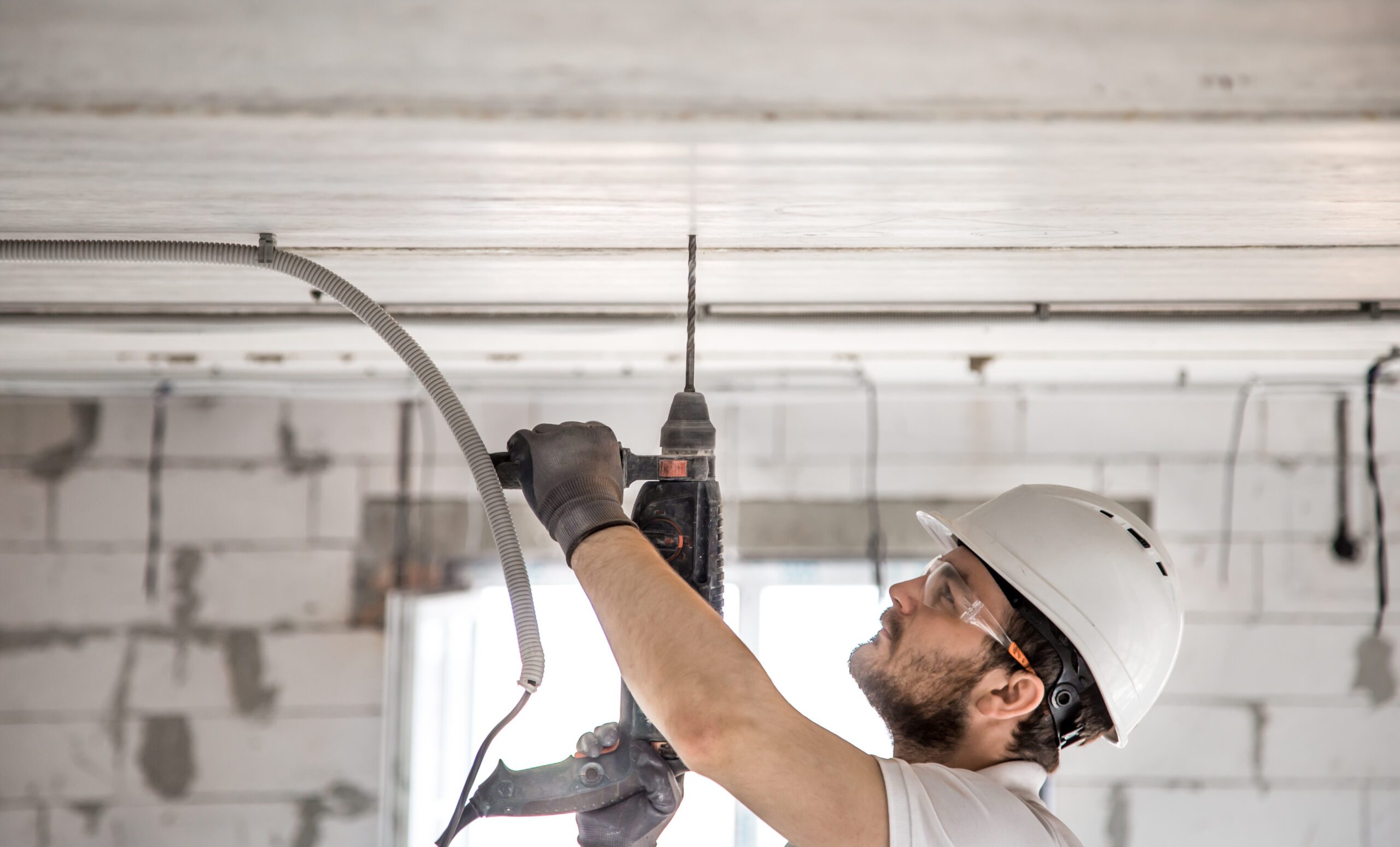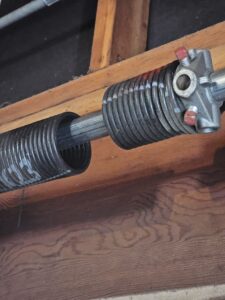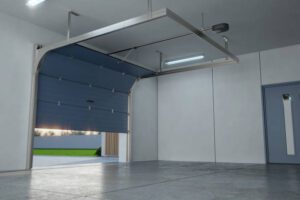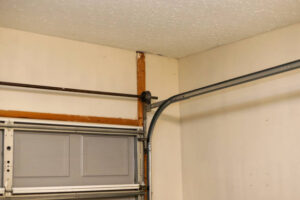Expert Garage Door Spring Repair Near Me:
Searching for a garage door spring repair service in your area seems straightforward. Your home’s safety and functionality depend significantly on choosing the right service provider, especially since these springs typically last 15 to 30 years and handle up to 20,000 cycles.
The average repair cost of $360 makes DIY repairs tempting for many homeowners. However, garage door springs pose serious safety risks without professional expertise. Two distinct types of springs exist – torsion springs mounted above the door and extension springs on the sides. Each type needs specific repair techniques and safety protocols.
This piece helps you understand garage door spring repairs thoroughly. You’ll learn to identify common problems and select the right professional service that meets your needs.
Understanding Garage Door Springs
Garage door springs are the powerhouse of your door system. These springs can handle weights from 250 to 600 pounds and will give a smooth operation.
Types of garage door springs
We used two main types of springs in the market: torsion and extension springs. Most modern installations use torsion springs, which are mounted horizontally above the garage door opening. These springs store energy through tension by winding around a metal shaft. On top of that, it has extension springs that run parallel to the horizontal tracks on both sides of the door. They work through a stretching mechanism.
How springs work
Garage door springs operate on the principle of counterbalance. Torsion springs stay under tension while your garage door remains closed. The stored energy releases when you press the opener button, which raises the door smoothly. Extension springs use a pulley system – they stretch during door closure and contract during opening.
Signs of wear and tear
Only when we are willing to spot early warning signs can we maintain spring health properly. These are the vital indicators:
- Uneven Movement: Your door moves in a jerky or unbalanced way during operation
- Unusual Sounds: You hear screeching, grinding, or loud bangs during operation
- Visual Indicators: You notice gaps between spring coils or rust forming
- Performance Issues: The door feels heavier or moves slower than usual
Regular checks of these parts will give optimal performance. Springs typically last between 10,000 to 15,000 cycles with normal use.
Common Spring Problems and Solutions
A broken garage door spring needs immediate attention because these components hold massive amounts of tension. You’ll know it’s broken when you hear a loud, gunshot-like bang.
Broken spring symptoms
These signs point to a failing or broken garage door spring:
- The door drops faster when closing
- Visible gaps between spring coils
- Cables appear loose or dangling
- The door opens only partially, about six inches
- Loud popping or banging sounds during operation
Emergency safety measures
Safety precautions are vital after you find a broken spring. You should never operate a garage door with a broken spring – it can lead to severe injury or death. A trapped vehicle inside needs extreme caution with any temporary measures.
Your first safety step is to disconnect the automatic opener by pulling the emergency release cord. This should happen only when the door is fully closed to prevent it from crashing down. A partially open door needs sturdy supports along both tracks to catch it if it falls.
Professional repair services usually arrive within 24-48 hours. Keep children and pets away from the garage door area until then. Manual operation should be your last resort. Make sure you have multiple strong helpers since the door’s weight needs full support without the spring’s help.
Note that DIY repairs on garage door springs can result in serious injuries or property damage. The best approach is to secure the area and contact qualified professionals who have the right tools and expertise to replace springs safely.
Professional vs DIY Spring Repair
The choice between professional repair and DIY for your garage door springs could mean the difference between safety and serious injury. These springs may look simple, but they pack massive amounts of tension that only experts should handle.
When to call experts
You need professional garage door spring repair as soon as you notice any spring problems. Each year, falling garage doors injure more than 2,000 people. Quick expert help prevents these accidents. Professional technicians go through rigorous training and use specialized tools. They follow strict safety protocols to handle high-tension parts safely.
Risks of DIY repairs
DIY attempts can have devastating results. Here are real cases of DIY disasters:
- Springs breaking in hand caused permanent nerve damage
- Spring recoil resulted in deep facial cuts
- Springs shot through walls and damaged property
- Unauthorized repairs voided warranties
Cost comparison
Professional spring replacement starts around $400 with parts and labor included. DIY might look budget-friendly at first, but hidden costs often exceed professional service fees. Bad installation leads to extra repairs that can damage other door parts. Many warranties cover spring replacement, which makes professional service cheaper over time.
Expert technicians finish most repairs in just 1-2 hours. DIY projects can eat up an entire weekend. Certified experts also provide service warranties to protect against future problems. The risks and costs of failed DIY attempts make professional garage door spring repair near me the safest and most budget-friendly choice.
Choosing a Reliable Spring Repair Service
Choosing a reliable garage door spring repair service needs careful evaluation of several factors. Service calls cost between $120 to $150, and most repairs take 1-2 hours to complete [35, 36].
Checking credentials
You should verify the company’s licensing, bonding, and insurance status before hiring them. A company with proper credentials will protect you from liability if accidents or damage occur during repairs. Here are the must-have credentials:
- Current state-specific licensing
- Workers’ compensation coverage
- Liability insurance protection
- Industry certifications
- Bonding verification
Reading reviews
Customer feedback gives a great way to get insights about service quality and reliability. Look for reviews that mention timeliness, professionalism, and technical expertise. The best companies maintain 4.5 stars or higher and receive consistent positive feedback about their repair quality and customer service.
Getting quotes
Detailed written estimates from multiple companies will give a fair price and help avoid surprise costs. A trustworthy repair service lists all expenses clearly, including parts, labor, and extra fees. Labor costs run 15-20% higher in urban areas compared to national averages. You should compare at least three estimates to get competitive pricing.
Professional companies send two technicians to ensure safety and provide clear project completion timelines. The prominent services also offer seasonal promotions and discounts, so it’s worth asking about current deals. Note that emergency services are accessible to more people but usually cost more.
Conclusion
Garage door spring repair just needs you to think over safety, expertise, and reliability. Professional services are the safest way to go, with their proper training, specialized tools, and exceptional experience.
Safety matters more than anything else with high-tension springs. DIY repairs gone wrong can cause serious injuries or get pricey with property damage. Letting qualified experts handle the job makes sense both practically and financially.
Of course, you should do your homework to find the right service provider. Look at their credentials, check customer reviews, and get multiple quotes to find quality repairs at good rates. The next time you need expert garage door spring repair services, Dynamic Garage Doors Inc is ready to help – just call 877-213-9571.
Professional spring repair ended up being the smart choice that protects your safety, keeps your warranty intact, and will give your garage door system years of reliable operation. Skip the DIY repairs and trust certified technicians who stand behind their work. They’ll give you peace of mind with proper installation and support whenever you need it.
FAQs
Q1. How much does garage door spring repair typically cost? The average cost for garage door spring repair ranges from $250 to $375, including materials and labor. For double doors, you may need to add an extra $125 to $135 per spring. In some cases, if additional repairs are necessary, the total cost could reach up to $500.
Q2. Is it safe to manually open a garage door with a broken spring? It’s not recommended to manually open a garage door with a broken spring due to safety risks. The door will be much heavier without the spring’s assistance, increasing the risk of injury or damage to the door mechanism. If absolutely necessary, use extreme caution, disengage the opener, and lift from the center, but it’s best to contact a professional immediately.
Q3. What is the typical lifespan of garage door springs? Garage door springs generally last between 7 to 12 years, depending on factors such as the type of spring, cycle rating, maintenance, door weight, and frequency of use. High-quality, well-maintained springs can last up to 15,000 cycles or more.
Q4. How can I determine the right spring for my garage door? To determine the correct spring for your garage door, you need to consider several factors: the spring’s length, wire size, inside diameter, and winding direction. You’ll also need to know your door’s height and weight. Due to the complexity and potential dangers, it’s best to have a professional assess and replace your garage door springs.
Q5. What are the signs that indicate a garage door spring needs replacement? Signs that your garage door spring needs replacement include: the door slamming shut unexpectedly, feeling heavier than usual, inability to rest in a mid-level position, loud popping sounds when closing, and noticeable strain on the garage door opener. If you observe any of these symptoms, it’s time to call a professional for an inspection and possible replacement.







